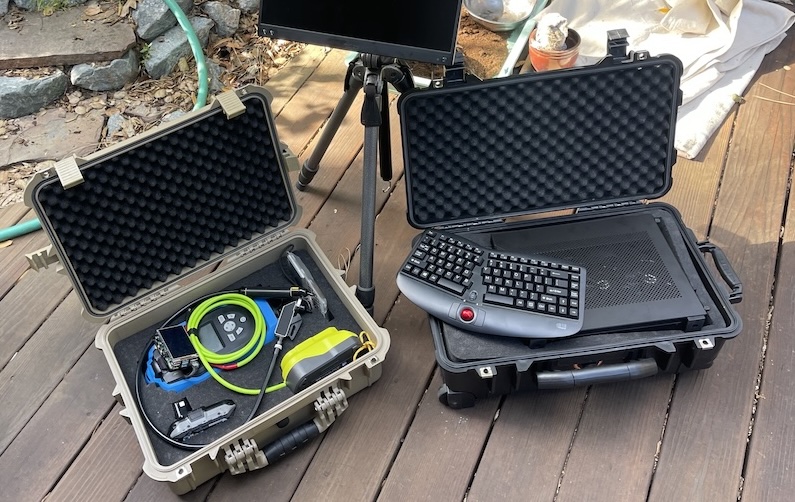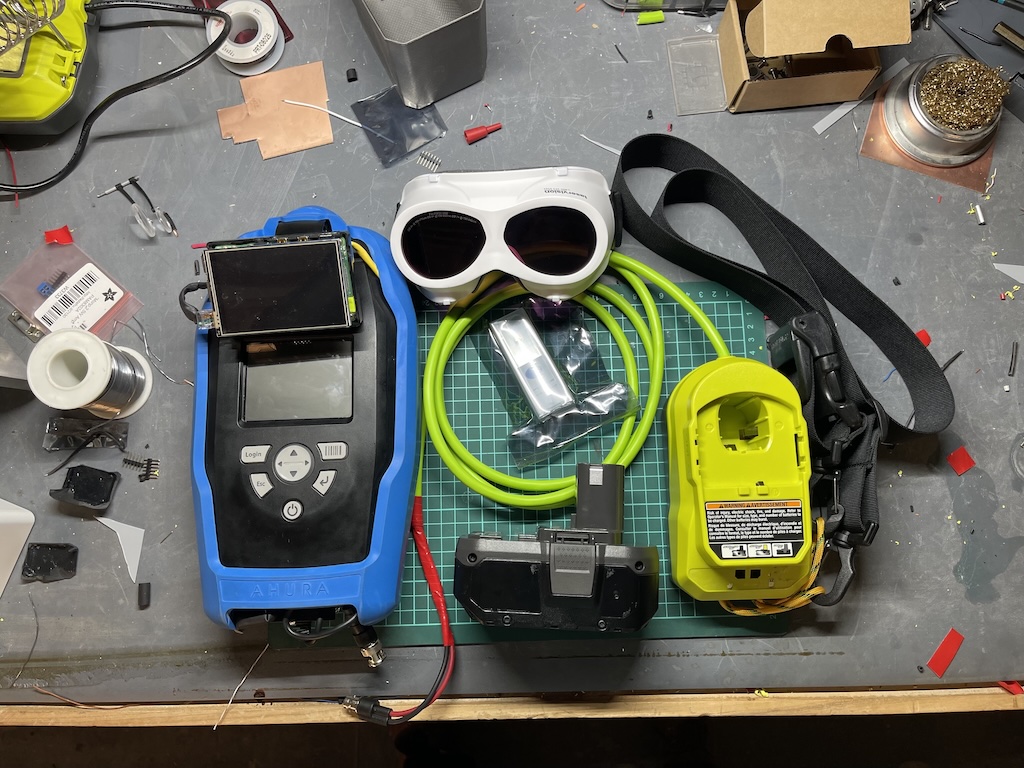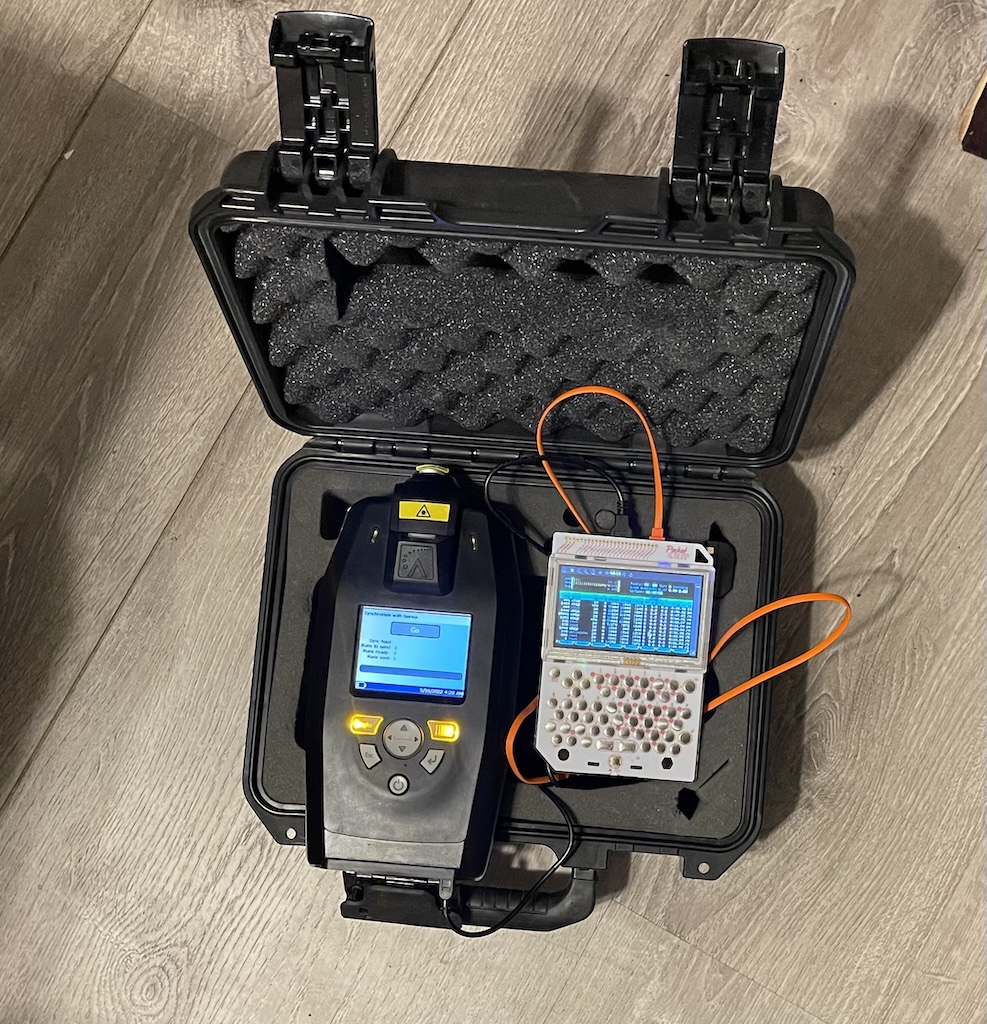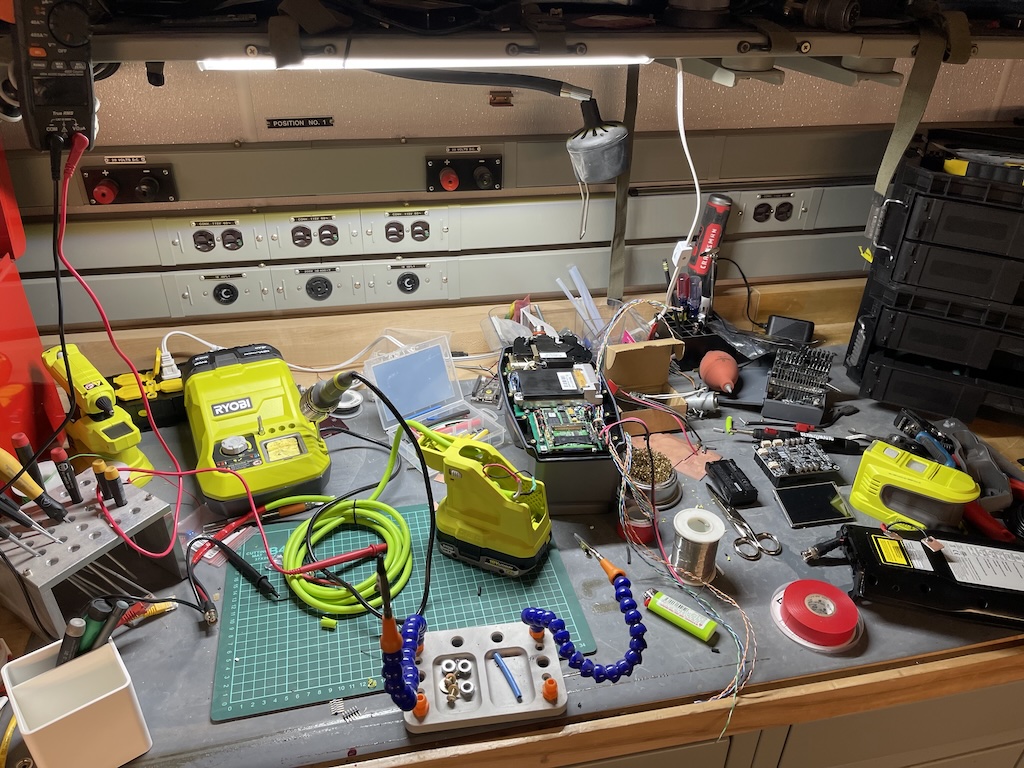COVID-19 Raman Spectroscopy Diagnostic




Project Overview
Developed a portable Surface Enhanced Raman Spectroscopy (SERS) system for rapid COVID-19 detection in saliva samples. The project aimed to create 30-second point-of-care testing capability for high-throughput scenarios like airports and stadiums.
Scientific Foundation
Based on South Korean laboratory research demonstrating SERS-based viral detection:
• COVID-19 virus diameter: 150 nanometers (large in semiconductor terms)
• SERS substrates provide 10^9 improvement in Raman photon emission
• Gold nanocube substrates on silicon for signal enhancement
• Machine learning classification of spectroscopic signatures
Hardware System
• Modified Aurora Scientific handheld Raman spectrometer ($1,200 eBay acquisition)
• Raspberry Pi with TensorFlow Lite inference engine
• Windows CE to Linux data bridge via Wine and Active Sync
• Ryobi battery power system for field deployment
• Portable shoulder-mounted configuration
Technical Challenges
• Data extraction from legacy Windows CE hardware
• Networking via CompactFlash and Wine configuration
• SERS substrate cost optimization (initially $70 per test)
• Portable power system design and integration
• Laser safety implementation and protocols
Machine Learning Pipeline
• Portable miniITX PC with RTX 2080 for field training
• TensorFlow Lite model deployment on Raspberry Pi
• Real-time spectroscopic data processing
• Gold standard PCR comparison dataset requirement
• Carry-on compatible ML training workstation
Industrial Design
Collaborated with Gabriel Dunn on:
• Breath capture system design concepts
• Disposable cap system with three SERS substrates
• Functional form factor prototypes
• Manufacturing considerations for mass production
Defense Innovation Unit Response
Developed as response to DIU open call for viral detection in human breath. Complete prototype system built in 2.5 weeks, demonstrating rapid response capability during pandemic conditions.
 Rauchwerk Research
Rauchwerk Research